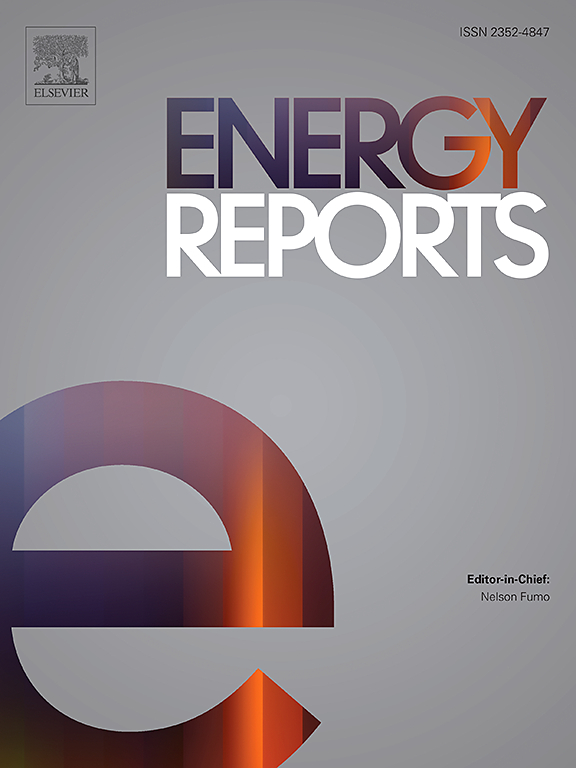Optimal carbon reduction in supply chain under the hybrid carbon quota and carbon tax policy
IF 4.7
3区 工程技术
Q2 ENERGY & FUELS
引用次数: 0
Abstract
This study investigates carbon reduction decision-making in a capital-constrained supply chain under a hybrid policy that combines carbon quota and carbon tax mechanisms. A Stackelberg game decision-making mechanism with the manufacturer as the leader is clarified to derive the optimal carbon reduction rate, wholesale price, and order quantity under the sole carbon quota policy, the sole carbon tax policy, and the hybrid carbon quota and carbon tax policy. The model further examines the influence of policy variables, such as carbon quota and carbon tax, along with consumers' low-carbon preference and carbon reduction cost coefficient on optimal decisions. Numerical simulations reveal that the hybrid policy leads to a higher carbon reduction rate than using either carbon quota or carbon tax alone. The reduction rate increases with a higher quota, tax, and consumers' low-carbon preference, but decreases with rising reduction costs. The hybrid policy achieves similar wholesale prices and order quantities with the carbon quota policy while significantly outperforming the carbon tax policy by achieving lower pricing and demand levels. Although the hybrid approach slightly reduces revenue compared to the quota-only policy, it generates substantially higher returns than the tax-only approach. These findings highlight the hybrid policy's ability to balance environmental effectiveness and economic performance. The study offers practical guidance for policymakers seeking to enhance supply chain sustainability through more integrated carbon regulation strategies.
碳配额与碳税混合政策下供应链的最优减碳
本文研究了在碳配额和碳税机制相结合的混合政策下,资本约束下供应链的碳减排决策。阐明了以制造商为主导的Stackelberg博弈决策机制,推导出单一碳配额政策、单一碳税政策和碳配额与碳税混合政策下的最优碳减排率、批发价格和订购量。该模型进一步考察了碳配额、碳税等政策变量以及消费者的低碳偏好和碳减排成本系数对最优决策的影响。数值模拟表明,混合政策比单独使用碳配额或碳税导致更高的碳减排率。减排率随着配额、税收和消费者低碳偏好的增加而增加,但随着减排成本的增加而降低。混合政策实现了与碳配额政策相似的批发价格和订单数量,同时通过实现更低的价格和需求水平,显著优于碳税政策。虽然与单一配额政策相比,混合方法会略微减少收入,但它产生的回报比单一税收方法高得多。这些发现突出了混合政策平衡环境效益和经济绩效的能力。该研究为寻求通过更综合的碳监管战略提高供应链可持续性的政策制定者提供了实用指导。
本文章由计算机程序翻译,如有差异,请以英文原文为准。
求助全文
约1分钟内获得全文
求助全文
来源期刊

Energy Reports
Energy-General Energy
CiteScore
8.20
自引率
13.50%
发文量
2608
审稿时长
38 days
期刊介绍:
Energy Reports is a new online multidisciplinary open access journal which focuses on publishing new research in the area of Energy with a rapid review and publication time. Energy Reports will be open to direct submissions and also to submissions from other Elsevier Energy journals, whose Editors have determined that Energy Reports would be a better fit.
 求助内容:
求助内容: 应助结果提醒方式:
应助结果提醒方式:


